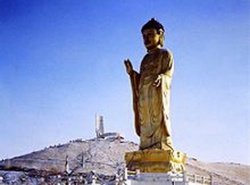Stealing from the Rich to Feed the Poor
Helping the poor is a commendable effort, but stealing from the rich to fulfill that commitment can hardly be justified. If this were made into a standard practice, society would be in turmoil. Rights of possession would be ignored, and stealing would become the accepted norm. Finally, the practice would defeat itself, and thievery would be recognized as a charitable act. This is hardly a desirable state of affairs; it is something not even remotely resembling a moral condition.
One of the distinct features of the Buddhist moral precepts is the universal character in which they may be practiced with benefit by all members of society. For instance, non-stealing (second precept) can be universally observed with desirable results, and the practice will help to promote coexistence, peace, and harmony in society. If this precept were reversed and stealing were made a moral principle, we can immediately see that there would be so much conflict and confusion that society would eventually cease to function. Thus, stealing can never be made a moral act, no matter how ideal and noble the motivation.
